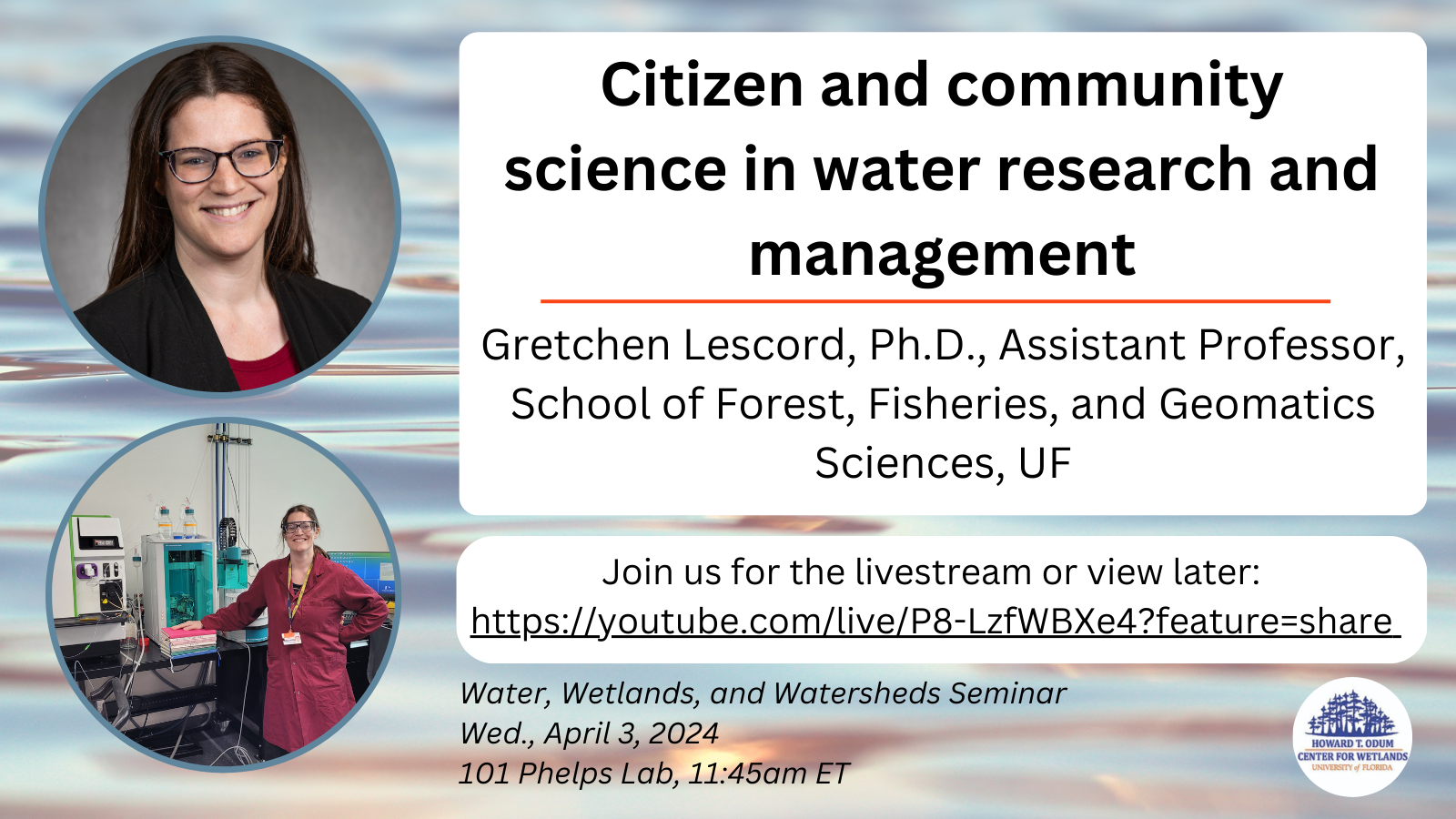
Gretchen Lescord, Assistant Professor, School of Forest, Fisheries, and Geomatics Sciences, UF
Join us for the livestream April 3rd, 11:45am ET: https://youtube.com/live/P8-LzfWBXe4?feature=share
(Please visit our YouTube channel main page for the stream if there are any issues with the direct link.)
ABSTRACT
Volunteerism in water research is increasing, largely due to the many benefits of public engagement in the scientific process. This talk will discuss bolstering the role of public participation in limnology and the management of aquatic ecosystems. It will specifically differentiate and highlight examples of both citizen and community science, focusing primarily on freshwater ecosystems and their fish. These examples will include several projects partnered with Indigenous Communities to understand the chemistry of waterbodies within their traditional territories and pollutant levels of subsistence-harvested fish. Additionally, the history and progression of the Florida LAKEWATCH program, one of the largest citizen science efforts in the country, will be discussed; volunteer engagement and training, sample collection, data collation and dissemination, and research will be detailed.
BIO
Dr. Gretchen Lescord is an assistant professor of applied limnology in the School of Forest, Fisheries, and Geomatics Sciences at the University of Florida. She is also the director of the Florida LAKEWATCH program, one of the largest volunteer-based aquatic monitoring efforts in the world. Dr. Lescord spent her early career in Canada, where she researched the ecology and water quality of lakes, with a special interest in contaminants, such as mercury and arsenic, and how they accumulate in freshwater fish and the food webs that support them. She obtained her Ph.D. in Boreal Ecology, with a specialization in stressed aquatic ecosystems, in 2019. She has studied the chemical ecology of lakes and rivers across North America and has trained in some of the world’s most specialized and advanced laboratories. In Florida, she pairs her expertise in aquatic ecology, analytical chemistry, and community science to support and lead the LAKEWATCH program. She also collaborates with other UF Faculty and Florida State Agencies charged with monitoring, researching, and managing lakes. Her goal is to help provide information and data to inform policy decisions and promote lake management practices that benefit freshwater ecosystems and the people of Florida. Dr. Lescord also supervises graduate students who work on limnological research around North America. She teaches two courses at the University where she uses the LAKEWATCH data and circulars as educational materials.
POSTCARD
